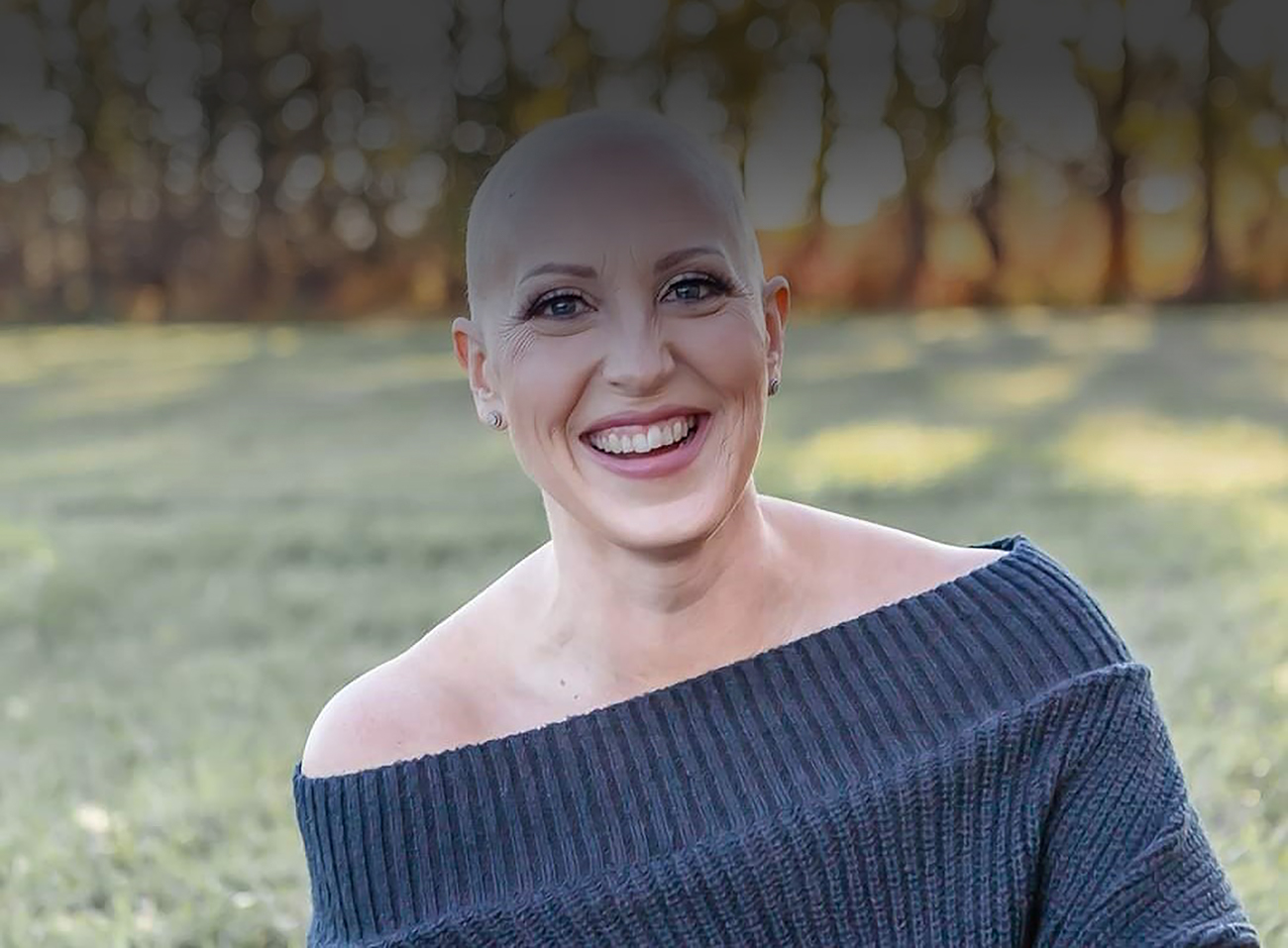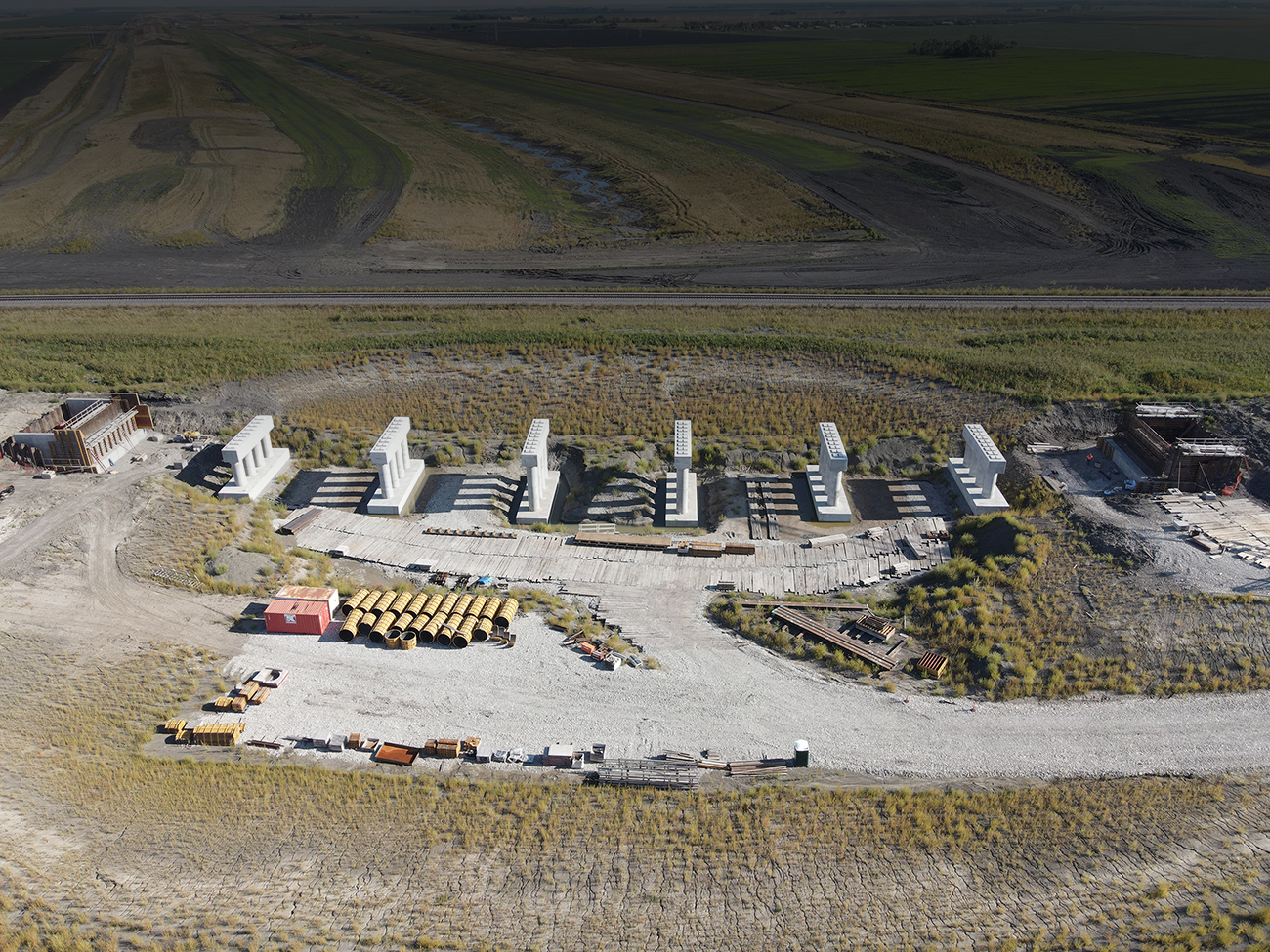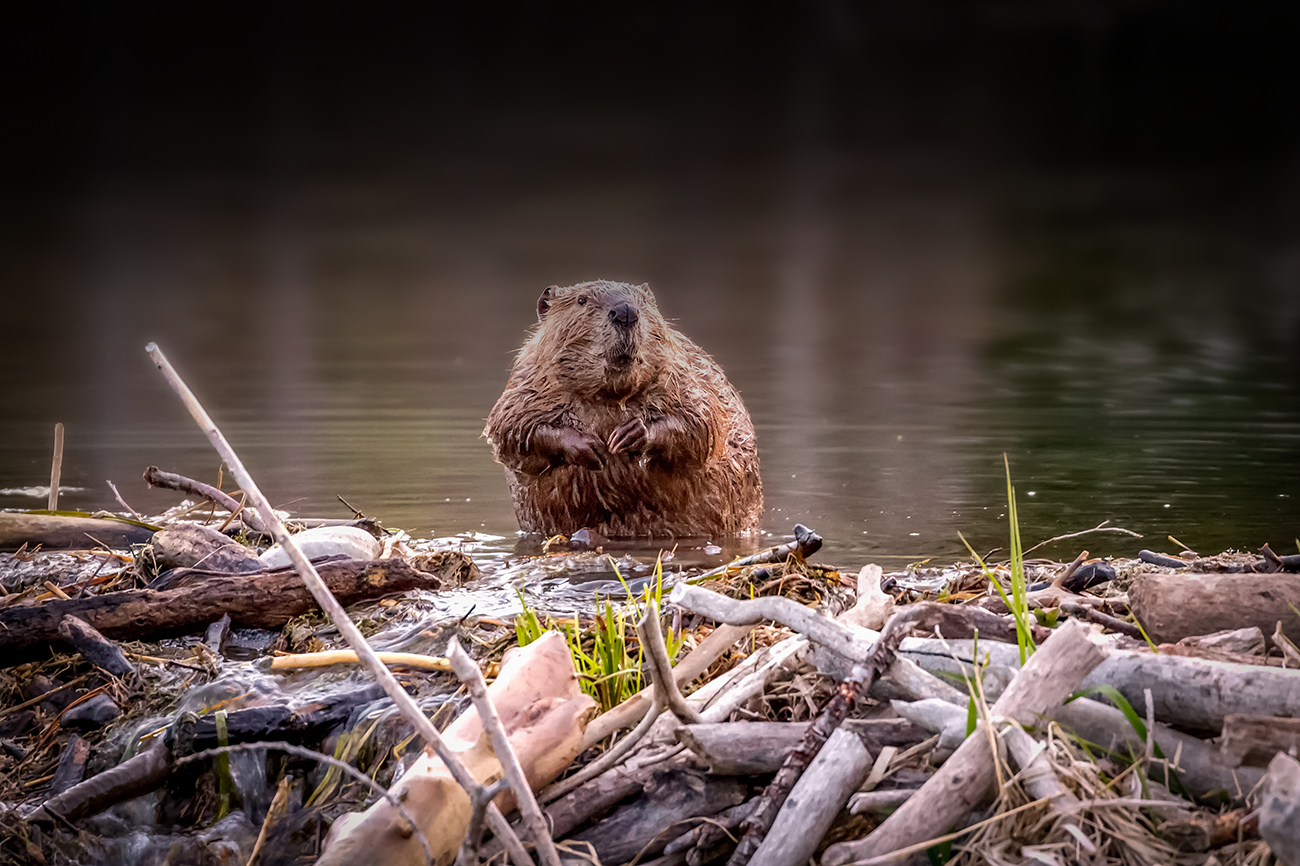
Montana nonprofit showcases healing power of horses for veterans, first responders with PTSD
By SUSAN GREEN
Staff Writer
Four years ago, whenever she left her Billings, Montana, home, Leslie Cartner would dread the return drive, fearing the steep hill to her house. While she knew her worry was ill-founded, that didn’t make the ride any easier.
The hill was just part of her struggle. Cartner had lost her son to suicide, and the trauma haunted her. “I needed help because I couldn’t function,” she recalled. “So, I reached out to Horses Spirits Healing to start therapy.”
A Navy veteran, Cartner learned about Horses Spirits Healing (HSH) from other veterans. The nonprofit, which the BNSF Railway Foundation has long supported, is “where the hurting come to heal” and gives veterans and their families a place to spend time with a horse and each other. The bond between the animals and people provides a calming and therapeutic effect.
“The connection veterans make here is out of necessity to stop hurting,” said Barb Skelton, who founded HSH with her husband Paul Gatzemeier in 2016. “Give them a horse and a brush, and pretty soon, they’re smiling and asking, ‘When can we come back?’ As they progress through the program, you can see them coming back into themselves.”
The need is great. Montana has a high concentration of veterans, with the suicide rates for veterans and Montanans five times and two times the national average, respectively.
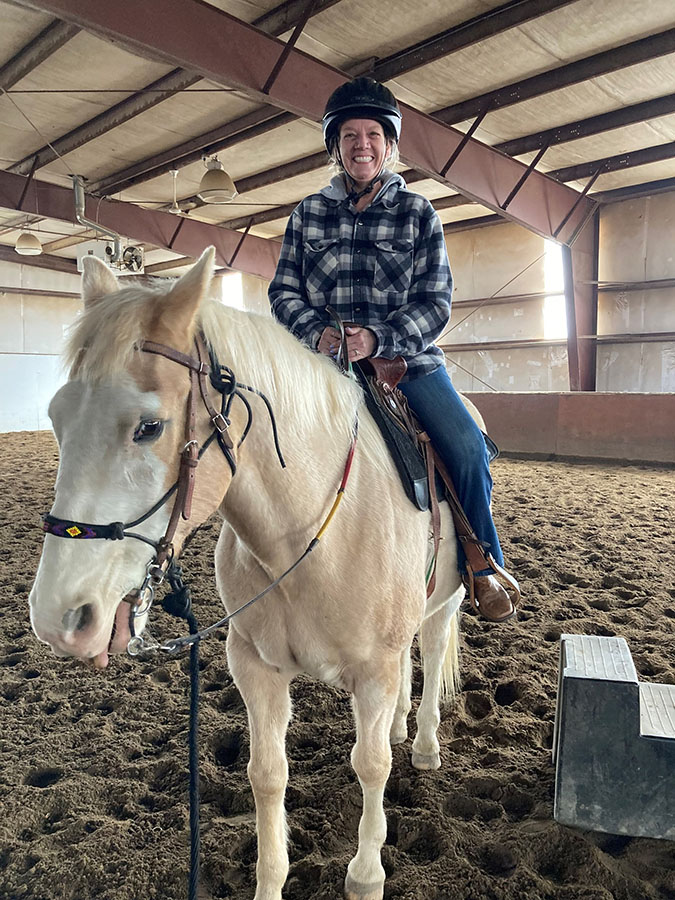
According to HSH Program Director Amanda Tusler, horses can have a major physical and emotional impact on people with physical disabilities, cognitive delays or emotional challenges. Physically, riding is good for balance and muscles, and it opens neuro pathways. Emotionally, it works because horses are good at mirroring.
“If a person is excited, nervous or has high-energy level, a horse will match that and vice versa,” she said. “They can gauge how people are feeling, and if they’re having a bad day, the horse can help ground them. It’s proven that horses can hear a heartbeat from four feet away, so that’s how they know a person’s state, especially when they have a relationship.”
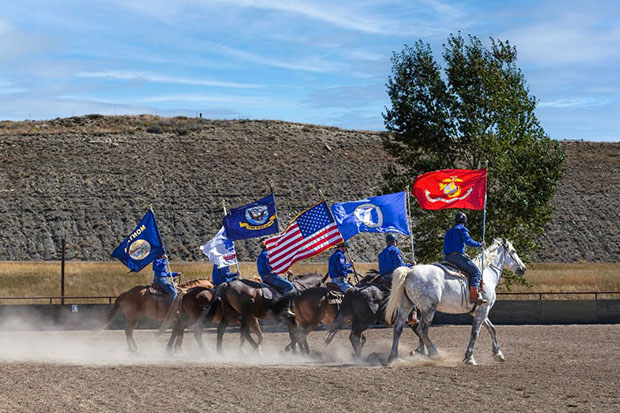
Skelton and Gatzemeier worked with the nearby Rocky Mountain College Equine program when they started HSH. The college has long recognized the horse-human connection through its therapeutic riding program for autistic children and veterans, especially those who suffer from PTSD.
Paul Gatzemeier passed away in March, but his wife continues HSH. It’s housed at Intermountain Equestrian Center with two large indoor and one large outdoor riding arena. “We turn no one away, and there is no charge for the program,” she said, adding that family members and now first-responders are welcome to participate.
About 60 volunteers, some of them veterans, help clean pens and assist with lessons. Vietnam veteran Bob Crandall was one of the first veterans Skelton and Gatzemeier approached to participate in the program; today he’s a board member.
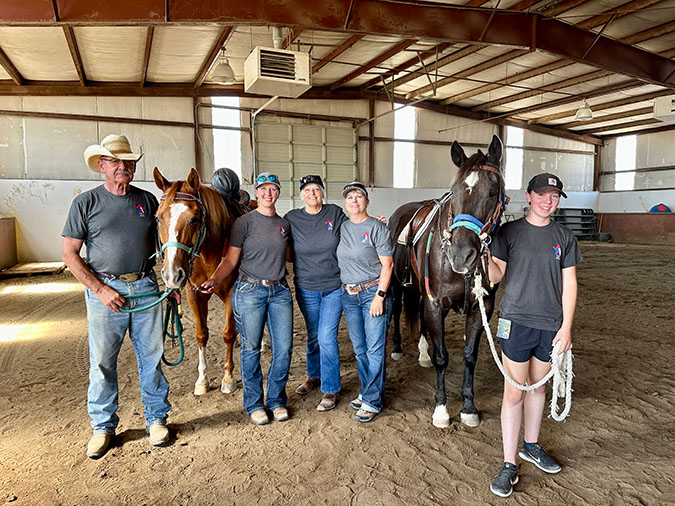
Crandall, a quadriplegic, has found that while many veterans have a tough time being around people, they find healing and salvation being around horses. His first experience was with a pony named Mastercard that he learned to groom, then started to exercise in a circle. Crandall was asked if he wanted to ride but he was skeptical, so they built a three-wheeled pony cart he rode in a Fourth of July parade.
“It wasn’t easy for me,” he recalled. “But being with my horse and part of something like that was a great experience. Communication between me and the horse goes both ways. I can’t just tell this horse what to do and he’s going to do it. You have to find a way to work with another creature on their level.”
That’s why the real therapists of the program are the 10 horses, mostly older and retired and not easily spooked. Three instructors are certified equine specialists and develop treatment plans, starting with grooming, then teaching participants to catch and ride a horse.
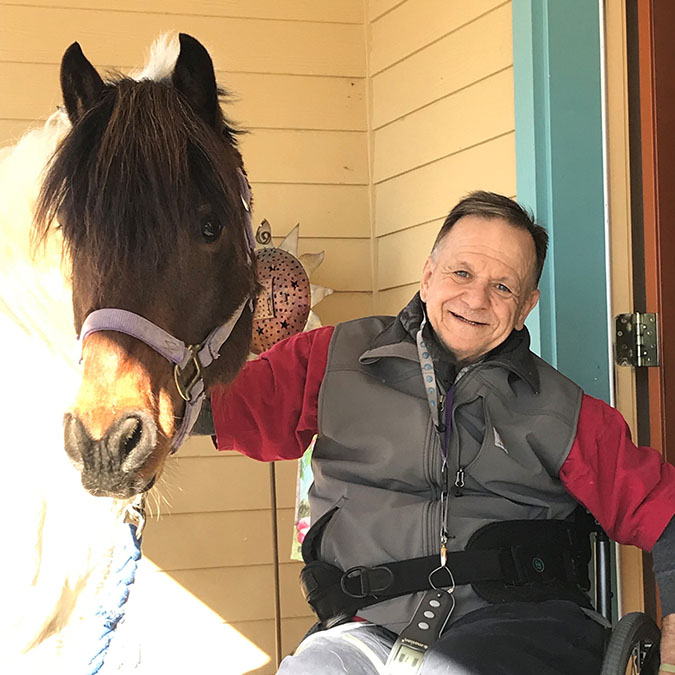
Another benefit is the friendships that form between the veterans. “They all have each other’s backs,” said Tusler. “The relationships that they have with horses gives them a new sense of purpose and their confidence grows.”
Cartner, who has a fear of horses, still must challenge herself. “I started by brushing and taking care of my horse. I found it calmed my nerves and built my confidence,” she said. “In June, I took my first flat trail ride, and my next goal is a ride in the hills.”
That progress has helped her in her everyday life as well. “When I have to drive the hill to my house now, I tell myself, ‘I conquered a 1,500-pound animal, I can drive down this street.’”
